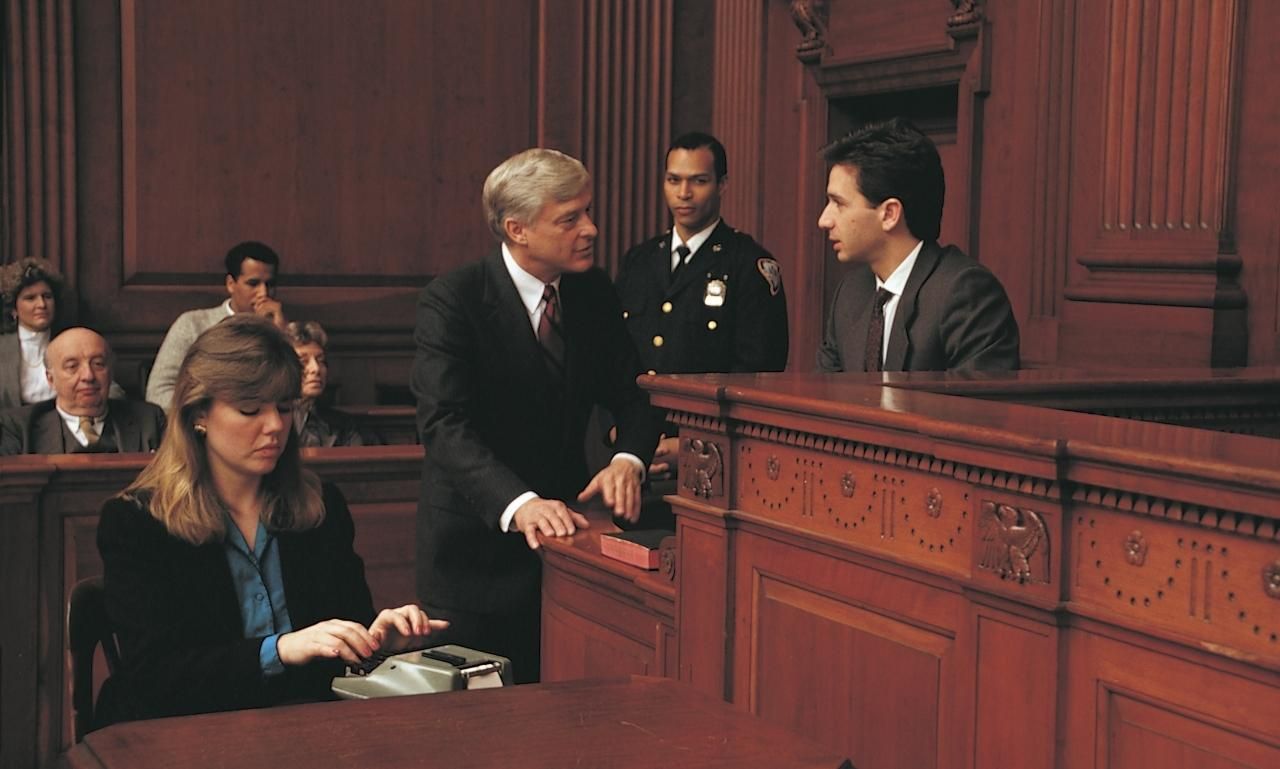Navigating child custody with a criminal record in Washington State can feel overwhelming. The courts take criminal histories seriously when determining custody arrangements. Your past doesn't automatically disqualify you from custody rights. However, it creates additional hurdles you must overcome to prove your parenting abilities.
Washington State courts always prioritize one thing above all else: the child's best interests. They carefully examine criminal records as part of this determination process. Understanding how your specific record might affect your case gives you a fighting chance at fair custody rights.
Let's break down exactly what you need to know about criminal records and custody in Washington State. I'll share strategies that have helped real parents overcome their past mistakes to maintain meaningful relationships with their children.
What is the Legal Framework in Washington State?
Child Custody Laws

Washington State follows a distinct approach to child custody compared to most other states. In Washington State, courts do not employ the legal term "custody" during their proceedings. The judicial system utilizes "parenting plans" and "residential schedules" as precise terminology. The documents establish both parental duties and child visitation periods.
Washington State maintains its parenting laws within the Revised Code of Washington (RCW). Section 26.09 of Washington State's laws regulates parenting plans and decisions about child custody. Parents who are involved in custody proceedings must follow the legal requirements set by statute.
Within Washington State judicial settings, the standard practice supports children keeping contact with both their parents. The court will endorse shared parenting unless evidence proves that one parent represents a danger to the child. The assessment considers your criminal record based on its specific nature.
Best Interests of the Child Standard
Washington State courts make all custody decisions based on the child's best interests. The standard evaluates various elements that impact children's physical health and emotional welfare. Courts need to consider parental competencies while assessing emotional connections between children and their parents and home stability assessments.
The courts must evaluate particular factors according to RCW 26.09.187 and RCW 26.09.191. These include the relative strength of parent-child relationships, each parent's past performance, and each parent's ability to meet the child's future needs.
A criminal record directly relates to several of these statutory factors. Courts examine how your past actions might affect your ability to provide safe care. They consider whether your history suggests potential risks to the child's welfare.
Factors Influencing Custody Decisions
Nature and Severity of the Criminal Offense
The type of crime on your record significantly impacts custody proceedings. Violent crimes and offenses against children carry the heaviest consequences in family court. Property crimes and non-violent offenses typically have less influence on custody decisions.
Courts examine whether your offense indicates potential danger to the child. They look at patterns of behavior rather than isolated incidents when possible. A single DUI from years ago differs significantly from multiple violent offenses.
Washington courts may order professional evaluations if your record raises concerns. These assessments help determine whether you pose any current risk to the child. They provide valuable evidence beyond just the criminal record itself.
Recency and Relevance to Parenting Abilities
When your offense occurred matters almost as much as what it was. Recent criminal activity suggests current problems that might affect parenting abilities. Older offenses with no subsequent issues carry less weight in custody determinations.
Courts look closely at offenses directly related to parenting capacity. Crimes involving child neglect or domestic violence face intense scrutiny. Drug offenses raise questions about substance abuse issues that might affect childcare.
The time since your last offense demonstrates your rehabilitation efforts. Five years of clean living shows more stability than six months. Your current lifestyle and choices matter more than past mistakes.
Distinction Between Charges and Convictions
Washington courts treat charges differently than convictions in custody cases. Pending charges create uncertainty about your future availability as a parent. Convictions provide conclusive evidence of past conduct the court must consider.
Dismissed charges technically shouldn't affect custody decisions. However, underlying allegations sometimes influence judges' perceptions. The circumstances leading to charges may still raise concerns about judgment.
You are responsible for explaining the context of your criminal record. Proactively addressing your history shows responsibility and awareness. Courts appreciate parents who acknowledge past mistakes rather than minimize them.
Specific Crimes and Their Impact
Violent Crimes
Violent crime convictions create significant barriers to custody rights in Washington State. RCW 26.09.191 explicitly mentions violent offenses as potential restrictions on parenting plans. Assault, domestic violence, and weapons charges fall into this category.
Courts examine the circumstances, victims, and patterns in violent offenses. Violence against the other parent or any child causes particularly severe restrictions. These cases often result in supervised visitation or limited contact arrangements.
The court may require anger management or violence prevention programs. Completion of these programs demonstrates your commitment to behavioral change. Documentation of your progress provides essential evidence for your case.
Substance Abuse Offenses
Drug and alcohol-related convictions raise specific concerns about parenting capacity. Courts worry about ongoing substance issues affecting your ability to care for children. They question whether you can provide a safe, stable environment.
Washington courts often order random drug testing for parents with these convictions. They may require completion of substance abuse treatment programs. Your willingness to participate in these requirements demonstrates commitment to your child.
Judges distinguish between different types of substance offenses. Possession charges generally concern courts less than distribution or manufacturing. The recency and frequency of offenses indicate potential ongoing problems.
Theft and Property Crimes

Property crimes typically have less impact on custody than violent or drug offenses. However, these convictions still raise questions about judgment and moral character. Courts consider whether these behaviors might affect your parenting decisions.
Patterns of dishonesty concern judges more than isolated incidents. Multiple theft convictions suggest character issues that extend to parenting. Courts consider whether your criminal behavior might expose children to illegal activities.
Washington courts rarely limit parenting time based solely on property crimes. These offenses typically don't suggest direct danger to children's welfare. However, they may influence overall credibility in contested custody matters.
Custody Arrangements and Modifications
Supervised Visitation
When parents present serious criminal backgrounds, the courts require supervised visitation between them and their children. This arrangement enables parents to maintain contact with their children through safe conditions that promote compliance. During these meetings, a professional third party watches all contacts between parents and their children.
The requirements for supervision depend on the particular issues that the court has regarding your criminal history. Professional supervisors are required to monitor visits when violence or abuse is present in the case. Family members can monitor visitations when the situations are not considered severe enough.
The requirement for supervised visitation in Washington State does not require an indefinite duration. Supervised visitation is an initial phase that leads to more freedom in child custody arrangements. Your regular presence, along with your good behavior during visits, establishes you for additional visitation privileges.
Joint Custody with Restrictions
Washington State courts grant joint custody under particular restrictions considering past criminal activities. The court can impose restrictions on alcohol use as one of the limitations during parenting time. Probation officers could need regular updates, and you must continue your treatment program.
The imposed restrictions focus on particular issues stemming from your criminal background. The court may decide that a person convicted of DUI cannot drive with their child. A person with a domestic violence background must finish specific counseling before being eligible to regain custody rights.
A number of essential elements determine whether the court will evaluate joint custody. Your recognition of previous errors and your demonstrated rehabilitation process are enormously important. The outcome of custody arrangements depends heavily on the other parent's position regarding joint child custody.
Modifying Existing Custody Orders
Washington State enables parents to modify child custody when their situations change. The courts will initiate modification procedures when someone gets convicted of a crime after an existing parenting plan goes into effect. Your rehabilitation efforts can serve as grounds for more time with your children under the same parenting plan.
RCW 26.09.260 establishes the legal criteria that courts use to modify custody arrangements. To modify court-ordered arrangements, the court requires evidence indicating substantial performance changes for the child. Criminal history, along with evidence of rehabilitation, will typically fulfill the criteria needed for modifications.
You must file a petition in court and provide evidence to support your desired changes in arrangements. Your continued participation in required programs and legal compliance prove your petition seeking different arrangements.
Considerations for Rehabilitation and Improvement
Evidence of Rehabilitation Efforts
Judicial authorities strongly prefer rehabilitation evidence that directly follows criminal convictions. Participation in programs mandated by the court proves your compliance with court requirements. Additional services that you join voluntarily demonstrate your commitment to personal development.
Proof of rehabilitation depends heavily on proper documentation. Certificates of completion, counselor letters, and treatment records provide objective evidence. Clean drug tests, compliance with probation, and character references further strengthen your case.
Washington courts appreciate seeing sustained effort rather than last-minute attempts. Long-term participation in rehabilitation programs carries more weight than recent enrollment. Your consistent efforts over time build the strongest case possible.
Demonstrating a Stable Environment
A stable living environment strengthens your custody position despite your criminal history. Judicial confirmation of your childcare abilities depends on your secure home base and consistent work alongside your community connections.
Judicial authorities analyze how your home environment promotes a child's well-being. The judicial examination includes evaluating emotional security protection and preserving family routines. The court investigates whether your residence allows dangerous elements to reach your children.
The Washington court system considers it a favorable sign when parents prepare in advance for their children's needs. A court values children's developmental needs by assessing appropriate activities, essential supplies, and school-related requirements. Your deep concern for childcare responsibilities becomes evident when you are actively interested in these matters.
Long-term Changes in Lifestyle
The court considers sustainable lifestyle modifications crucial in Washington state custody proceedings. Courts require proof showing you have resolved the factors that caused your criminal conduct. The court system needs evidence that positive transformations will persist throughout the long run.
Stable employment establishes your responsibility both for providing care and financial support. The commitment to both health care and reliable parenting emerges through continued sobriety. Developing solid support networks and healthy relations demonstrates emotional balance in a person.
Washington courts accept that true transformation requires time and hard work to succeed. The courts value progressive and steady progress more than instant change. Your journey toward stability and responsible parenting matters more than perfect results.
Legal Strategies and Support
Importance of Legal Counsel
Securing experienced legal representation is crucial when facing custody issues with a criminal record. An attorney familiar with Washington family law understands how courts view different offenses. They help develop strategies addressing your specific situation.
Legal counsel helps present your rehabilitation efforts effectively. Court officials understand the most substantial evidence types that work in these cases. They develop predictions about opposing arguments to create proper response strategies.
The legal approach in Washington custody cases that involve criminal records needs detailed assessment. Lawyers assist with understanding multiple legal procedural steps because they comprehend the specific procedural guidelines and evidence rules. Through their guidance, you increase your opportunities to secure suitable custody arrangements.
Gathering Comprehensive Evidence
Substantial evidence collection enables you to maintain stronger ground in custody proceedings. The documentation you provide regarding your rehabilitation stands on its own to prove what you have stated. Your case receives credibility through references provided by professional employers combined with counselors and members of your community community.
The evidence you present should directly address all problems stemming from your criminal history. Treatment records from substance abuse programs refute any false beliefs about drug-related offenses. Anger management completion certificates document the completion of violent crime history programs.
The effectiveness of stability proofing increases when using timeline evidence. Your records about employment history and housing and program participation activities demonstrate substantial development. Showing your transformation into a responsible parent requires a time-based presentation.
Presenting a Strong Case in Court

Your appearance in court plays a significant role in determining the outcome when parents seek custody of their children. Appropriate dress, respectful demeanor, and honest testimony matter enormously. Your conduct in the courtroom reveals your present maturity and personal qualities to the court.
You should address your past criminal convictions directly instead of trying to ignore them. Recognize your previous errors while describing the particular actions you have taken to rebuild. This method shows growth and accountability instead of trying to ignore the truth.
Respond well to detailed questions regarding your criminal record. Develop a clear explanation of your personal growth since these past incidents. The way you handle discussions about past mistakes proves your development as a person and your self-awareness.
Conclusion
The existence of a criminal record creates difficulties in Washington State custody proceedings, yet it does not necessarily block parent-child bonds. The judicial system determines child protection against family bond maintenance based on individual circumstances. Your particular situation determines how much a criminal record affects child custody decisions.
Your post-conviction rehabilitation work plays an essential role in these circumstances. The courts require proof that you have solved your core issues and transformed problematic actions. Your present state of stability and your ability to parent become more important than your previous misconduct.
Patience and persistence are necessary for people with criminal records who want to obtain custody of their children. Your ability to demonstrate reliability leads to the judiciary system increasing your parenting rights. Positive progress through time leads to improved child custody outcomes.
Also Read: What Are My Rights with Primary Physical Custody?




